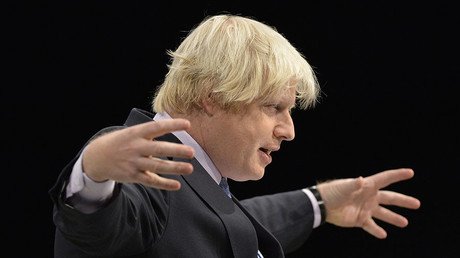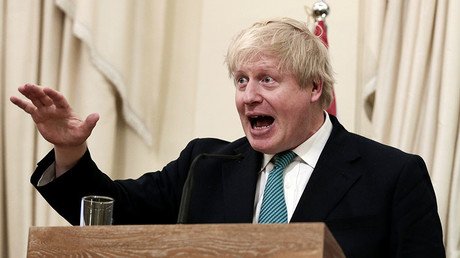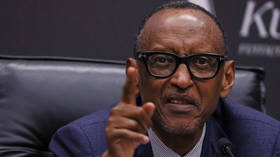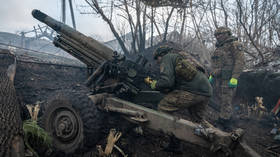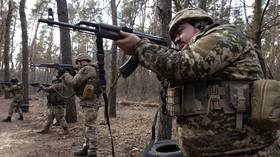Russia could help ‘relieve Syrians of tyranny,’ join US-led coalition – UK’s Boris Johnson
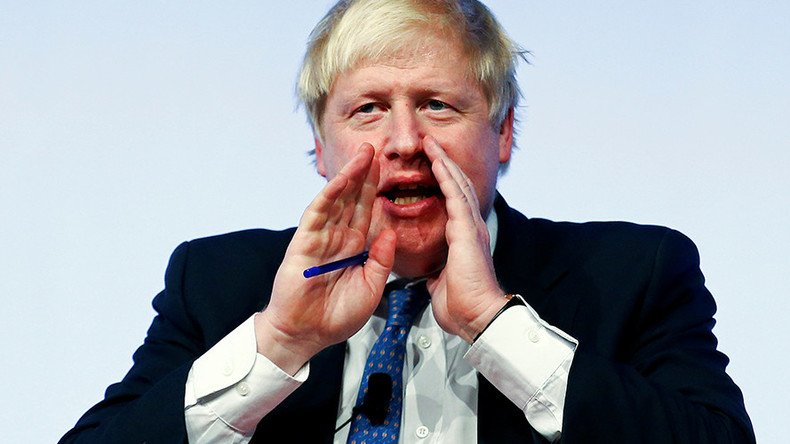
UK Foreign Minister Boris Johnson has suddenly suggested that Moscow join the Western coalition in Syria, saying that Russia could assist in “relieving Syrians of a tyranny” of “toxic Assad.” Russian MPs were not thrilled by the prospects.
“Assad has been clinging on. With the help of Russians and Iranians, and by dint of unrelenting savagery, he has not only recaptured Aleppo. He has also won back most of ‘operational’ Syria,” Johnson wrote in a column penned for The Telegraph. While Johnson called for gathering “all evidence at Khan Sheikhoun,” citing the “painful” lessons of the 2003 Iraq invasion, the British FM seems to have already drawn his conclusions.
“It is in some ways bizarre that Bashar al-Assad should be so reckless,” Johnson writes, adding that “it seems mystifying that he should now raise the stakes by so blatantly murdering so many of his own people with chemical weapons.”
Johnson also seems to have convinced himself that the Assad government also carried out the chemical weapon attack in Ghouta, back in 2013.
“He learnt that he could get away with it. He learnt that he could cross the ‘red lines’ of the West with impunity,” according to the British foreign minister.
But the climax of his message is somewhat unexpected – the latest events are “in fact, an opportunity for Russia.”
“Now is surely the moment for them to make a sensible compromise – to join a coalition of more than 60 countries in the fight against Daesh, to maintain their strategic interests in Syria, with the prospect of more productive relations with President Trump and in the knowledge that the West will eventually help rebuild the country,” Johnson writes.
“The Russians saved him. The Russians can help remove him, through a carefully supervised transition process that preserves key institutions of state – and usher in a stable and pluralist future for the country.”
Assad “is literally and metaphorically toxic, and it is time Russia awoke to that fact. They still have time to be on the right side of the argument,” Johnson concluded.
The column comes a couple of days after G7 leaders rejected Johnson’s calls for more sanctions on Russia. French Foreign Minister Jean-Marc Ayrault said diplomats had not discussed the issue in any depth, but confirmed Johnson had raised the prospect of sanctions.
In Russia, early reactions in political circles did not show much enthusiasm.
“I don’t think that joining the Western coalition which just pretends to be fighting Islamic State would be the right choice. As one famous Russian film goes: no, we’d rather welcome you,” Franz Klintsevich, a member of the security and defense committee of the upper chamber, told RIA Novosti.
“Johnson is still struggling to find his political image: he either calls for new sanctions (against Russia), or now calls us to join the Western coalition,” Aleksey Pushkov, member of the same committee, wrote on Twitter.
On April 4, Syrian President Bashar Assad was accused by Washington of conducting a chemical weapons attack on the town of Khan Shaykhun in the Idlib Province. Two days after the attack, the Trump administration ordered an attack of 59 Tomahawk missiles at a Syrian airbase in Homs.
On Friday, Russian Foreign Minister Sergey Lavrov referred to the US missile strike on Shayrat as “an act of aggression, which blatantly violated the principles of international law and the UN Charter.” He also called on Washington and its allies to respect Syria’s sovereignty, adding that the attack has “serious ramifications not only on regional, but also global security.”
